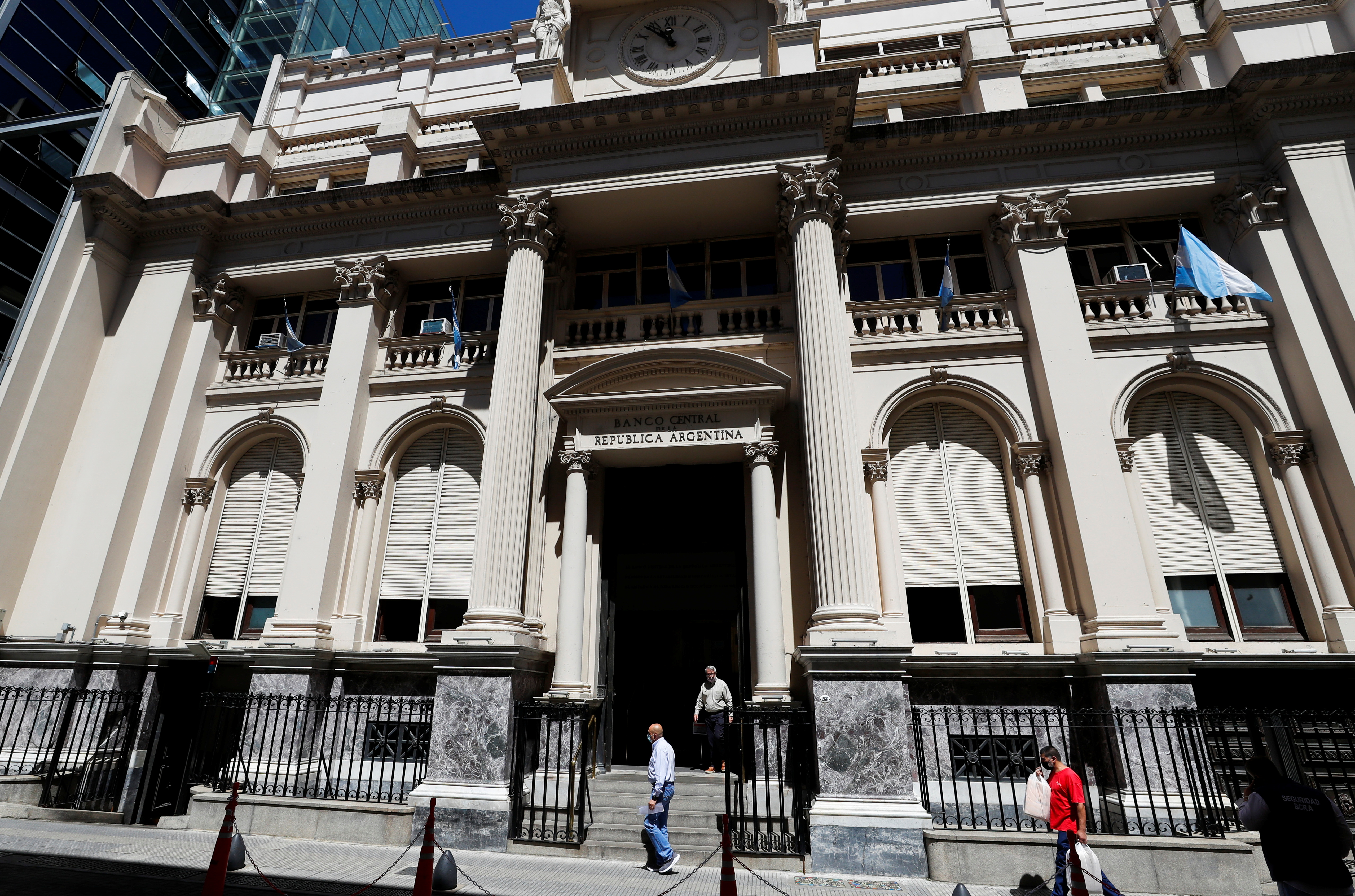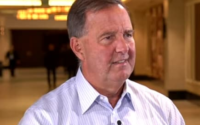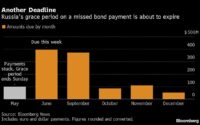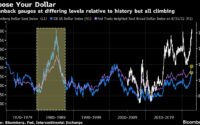Reporting by Jorge Otaola; Writing by Brendan O’Boyle and Isabel Woodford; Editing by Anthony Esposito, Richard Chang and Jamie Freed
Argentina central bank hikes key rate to 133% as inflation worsens

The facade of Argentina’s Central Bank is pictured in the financial district of Buenos Aires, Argentina December 7, 2021. REUTERS/Agustin Marcarian/File Photo Acquire Licensing Rights
BUENOS AIRES, Oct 12 (Reuters) – Argentina’s central bank raised the country’s benchmark interest rate to 133% from 118% on Thursday as inflation data came in worse than forecast, 10 days before voters go to the polls to choose a new president amid a deepening economic crisis.
The hike came shortly after September inflation figures were released, landing above expectations at 12.7% monthly and 138% annually, worsening surging prices that have sapped wages and savings and pushed two out of every five people in Argentina below the poverty line.
Argentina’s central bank is struggling to keep the benchmark interest rate in line with inflation expectations, with a central bank poll of analysts later in the day forecasting inflation to end the year at more than 180%.
Some commentators questioned whether the latest hike was too late amid a worsening economic scenario.
“It is no longer useful to raise the rate, expectations have gone away and raising it at this time is not going to contain the flight from pesos to dollars,” a national private banking manager said on condition of anonymity.
The impacts of inflation has been worsened by the government’s near-18% devaluation of the peso in mid-August, which coincided with the prior central bank hike, where it increased the interest rate from 97% to 118%.
A rapid freefall of Argentina’s peso has since followed, with the currency surpassing the psychological barrier of 1,000 pesos per U.S. dollar earlier this week as the country prepares to vote in general elections scheduled for Oct. 22.
Voters will be choosing who to succeed outgoing leftist President Alberto Fernandez, with radical libertarian Javier Milei seen as the front-runner due to his shock first-place showing in the August primary.
Milei, who is seeking to shut the central bank and dollarize the economy to tame inflation, recently recommended depositors avoid renewing bank holdings in pesos, arguing that the peso does not even serve as “excrement.”
The central bank’s rate change on Thursday came after a last-minute decision not to raise the rate to 145% “following a leak,” after Reuters reported the higher figure, citing a source close to the bank.
Our Standards: The Thomson Reuters Trust Principles.
[ad_2]
Source link


